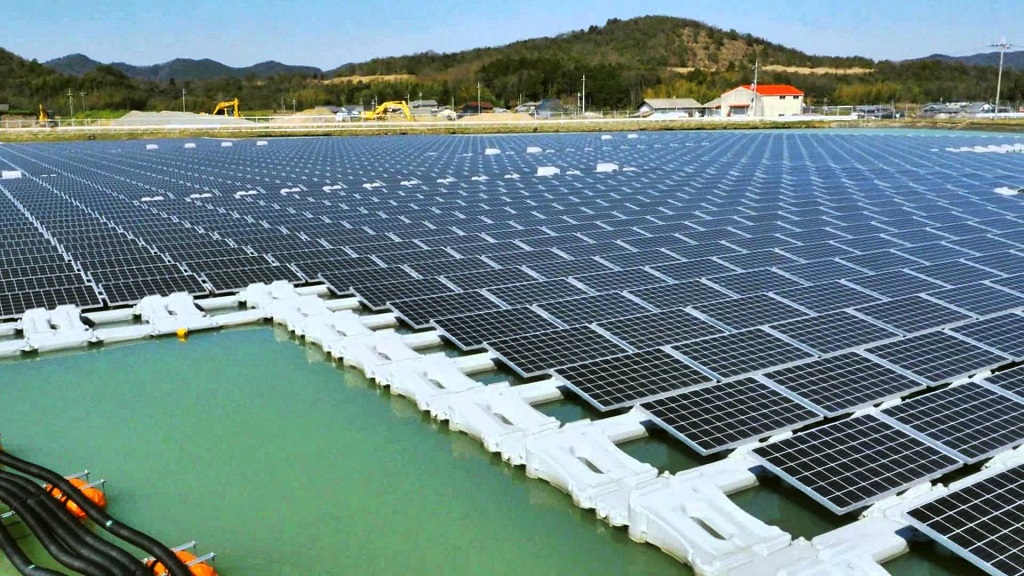Africa has always been at the lagging side in everything that pertains the world. Even with the wealth that abounds on the continent, illiteracy, poverty, war, and diseases have failed to cease as a result of corruption, greed, and political rascality of its leaders. Amidst all these, Africans have refused to back down and let circumstances break their bones.
These young African innovators, inventors, and creators are gradually bringing some form of African renaissance with their creations in science and technology.
10 young African inventors that are bringing technological revolution to the continent
Kelvin Doe ( Sierra Leone)
Evans Wandogo (Kenya)
Sam Kodo (Togo)
Chakroun Abdellah (Morocco)
Duro-Aina Adebola, Akindele Abiola, Faleke Oluwatoyin and Bello Eniola (Nigeria)
Thato Kgatlhanye (South Africa)
Farai Musendo (Zimbabwe)
William Kamkwamba (Malawi)
Verone Mankou ( Republic of the Congo)
Arthur Zang (Cameroon)
Kelvin Doe
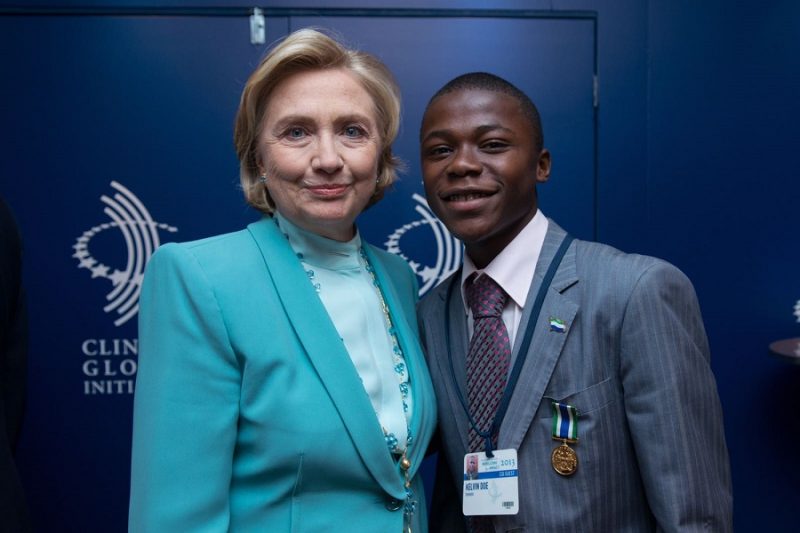
The main problem with most places in Africa is as regards electricity. That is the problem Kevin Doe aimed at solving when at the age of 15 he invented a battery that could power light in homes. From Sierra Leone, Doe designed his battery using recycled materials that included soda, acid, and metal, wrapped with tape.
One significant thing about Kevin Doe, apart from the fact that he began his inventions as early as 12, is that he actually taught himself engineering through dedication and focus. By 16, he had built a broadcast radio machine and an electric generator.
Like most others, his inventions were done using scraps of electronics. Unlike others, however, he scavenged from dustbin to dustbin in Freetown to add up the needed scraps.
DJ Focus, as he is popularly known, has been able to found the KelvinDoe Foundation as well as the KDoe-Tech Inc.
This young African inventor has become an inspiration to so many in his country, as well as everywhere his story is heard. He has been to Ghana most recently, prior to the country’s 60th independence anniversary for the Jubilee Youth Seminar at the University of Ghana. The seminar was part of his Innovation Catalyst Tour in which he was expected to visit 10 universities in the country.
As a result of his efforts, Doe has won the respect of so many great minds including Bill Gates, the Clinton family, as well as many leaders in Africa including Ghana’s Nana Akufo-Addo. He may as well go down as one of the greatest inventors in the continent.
Evans Wandogo
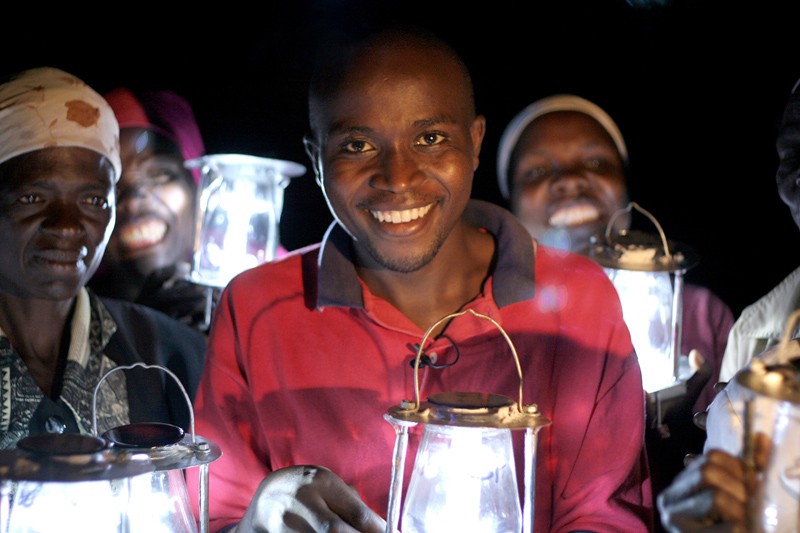
At the age of 19, this young Kenyan decided to find a way of solving the power problem being faced by his community. This led him into experimenting with LED (light-emitting diode) Christmas light. Wandogo succeeded in developing a solar lantern, which has since spread in Kenya and is being used in Malawi.
The lantern which is known as MwangaBora (meaning “good light’), is made from 50 percent recycled material, and served to promote education, fight eye diseases, and cut poverty among Kenyans.
He grew up from a poor family, hence he had to walk between 10 to 20 kilometers to and from school in an attempt to get a high school certificate. He proceeded to obtain a BSc (honors) in Electronics and Computer Engineering from the Jomo Kenyatta University of Agriculture and Technology.
More than just an innovator, Wadongo is as well bringing a revolution to Kenya thanks to his Sustainable Development For All-Kenya (SDFA-Kenya). The SDFA is a non-profit organization which he founded in for the purpose of bringing environmental, educational and economic empowerment
One of CNN’s Top Ten Heroes and a finalist for Humanitarian Hero Award, Evans is a Co-Founder of GreenWize Energy Ltd
Sam Kodo
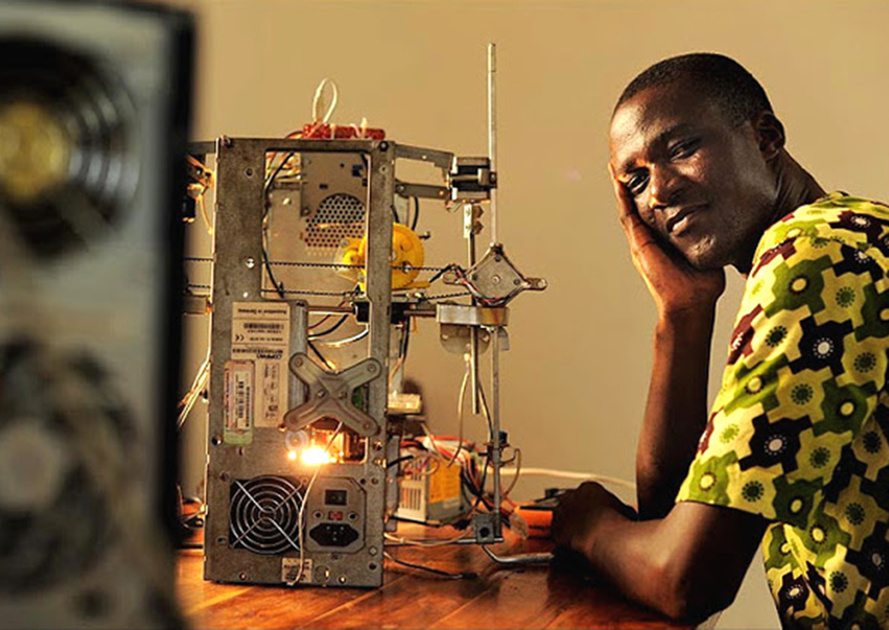
Togo is one of the smallest countries in Africa. Still, from it came Sam Kodo who is regarded as one of the continent’s greatest innovators. Kodo developed a humanoid robot, able to communicate with humans when he was only 19. He has gone on to invent the first African low-cost computer.
It was at the age of 7 that Kodo began working on his first Robot. The advantage this scholar has was that his father was a physics lecturer at the University of Lomé. Utilizing the opportunity, he stuck around the library going through things most of us would only go through for the sake of passing exams. That led to his romance with electronics.
With the help of his parents, he got toys and old gadgets which he broke down and built back up. By the time he was fifteen, his robot could do some important things like recognize faces and objects, as well as speak and understand.
His journey took him to the creation of smartphones and PCs which he makes through a company he founded called Infinite Loop. The company deals in the production of low-cost personal computers for students. More so, he has a very small PC called Lifebook PC. Because of its size, you could actually fit that into your pocket and you need to connect it to the television or phone for it to function as an internet enabled PC.
He is too good that about the Samsung Galaxy S4 Mini, that he doesn’t see a phone, instead he sees different things which could be made from the different components of the device.
Chakroun Abdellah
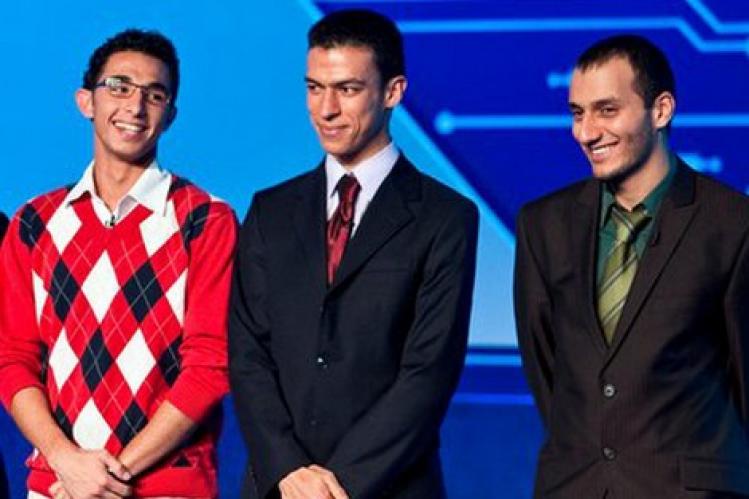
This Moroccan inventor was more of a bank of innovations. One of the greatest among the Young African inventors, Abdellah began inventing things when he was only 18. By the time he was 25, he had had 35 different inventions to his name, of which two were patented.
Although he died on November 6th 2015, we still deem it fit for him to be on the list as he was a very important part of technological inventions in Africa, and most especially, in Morocco.
His inventions were both revolutionary, bold, and broad. They covered various aspects including private mechanics of vehicles, military inventions, and medical inventions.
He rejected working for some foreign companies as he had a dream of starting his own company to discover the talents of Moroccan students and invest in them through giving them a new vision.
His life and dreams were cut short at the age of 31 after suffering from a heart attack. He died leaving behind a significant total of 37 inventions.
Nigerian Secondary Students
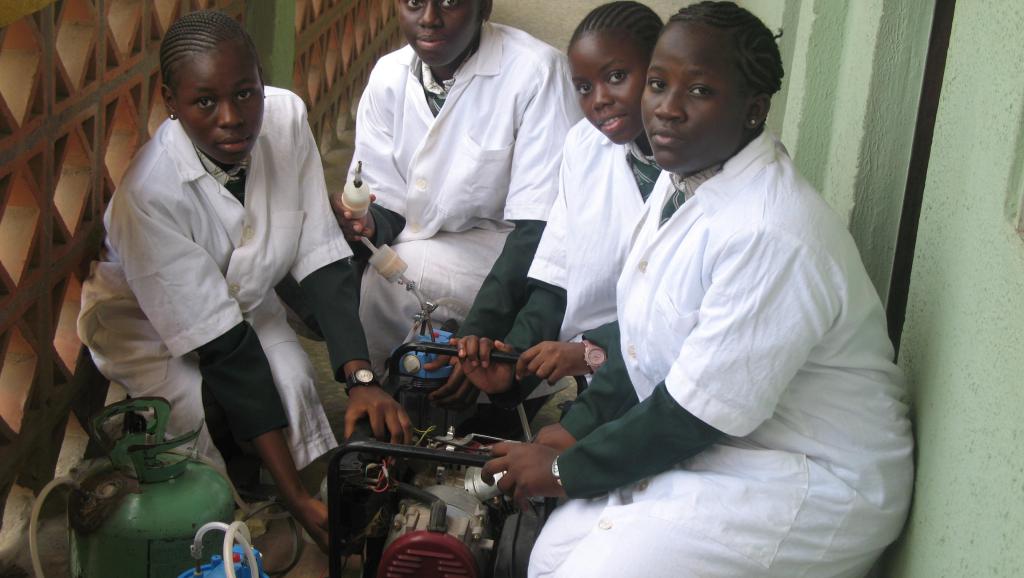
It was in 2012 that these young Nigerian students of between the ages of 14 and 1 came together and produced a generator that could be powered by urine. The generator was able to run for 6 hours on 1 liter of urine.
‘The Fantastic Four’ as they are called, were students of the Senior Secondary School II students of Doregos Private Academy, Ipaja, Lagos, when the created their electrical generating set.
This invention was born out of the desire to solve the electricity problem in Nigeria, as well as to provide an alternative to generating set which is powered by petrol as fume from them have caused much death in the country. More so, there is the economic aspect of their invention.
The first idea that came to the girls after reading of a family of five that died as a result of carbon monoxide poisoning was to come up with a water run generator, but they realized that “the amount of voltage it will take to break the water molecule is large and we wanted something small so we can have a larger output,” one of them said in an interview with Nigerian Vanguard. It was this that led them to settle for urine.
Thato Kgatlhanye
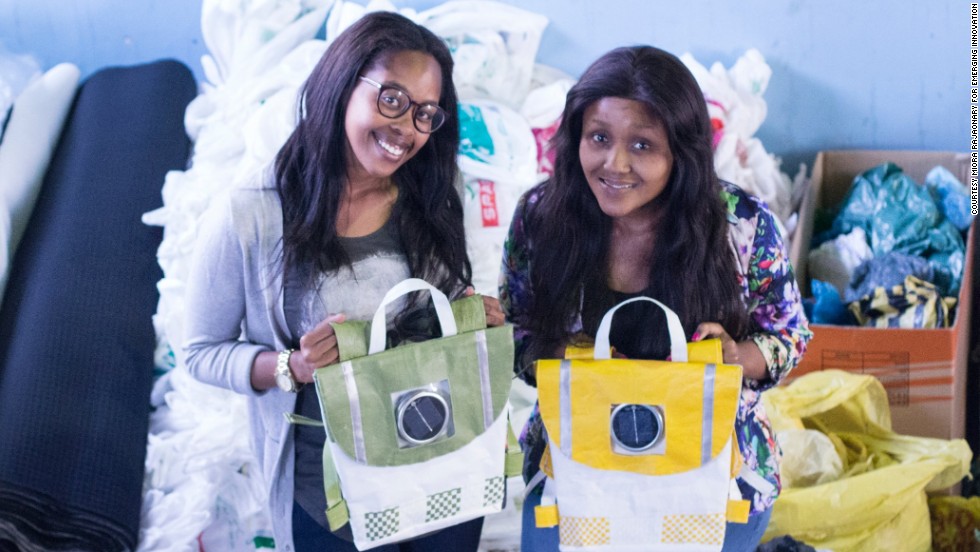
This South African young lady invented a schoolbag with solar technology which could help children study for up to 12 hours. Also, the bag was designed with retro-reflective material so that children could be more visible and safe on their walk from school after dark.
More than an inventor, Thato Kgatlhanye is also a young African entrepreneur who has taken to the core of her innovation and entrepreneurship the education problems of school children.
It was at the age of 18 that she began her company, Rethaka. The company which has a manufacturing plant in Rustenburg, South Africa, was designed to recycle waste products and produce important things from them.
Her school bag which was globally acclaimed was the first product of the company.
Thato Kgatlhanye was immediately recognized for her works by Forbes magazine and Bill Gates. Also, she has been awarded the SAB Innovation award, SA Innovation Summit award, and the MasterCard Foundation Anzisha Prize.
Farai Musendo
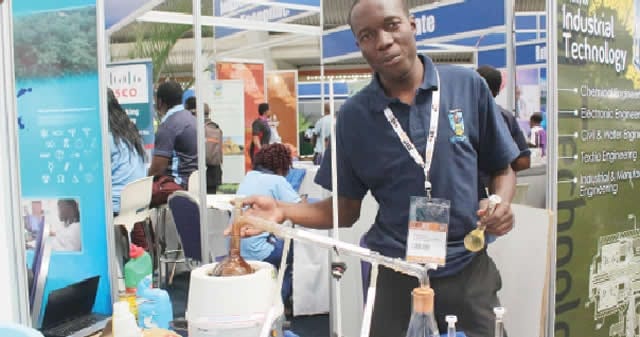
Musendo is a student of the National University of Science and Technology Zimbabwe. He joins as one of the young African inventors with his machine that could turn plastic to diesel. The 24-year-old final year chemical engineering student said the innovation was to reduce littering of the country with plastic that could be converted into something good.
He exhibited his invention at the 57th edition of the Zimbabwe International Trade Fair (ZITF) in 2016.
According to him, used plastics are collected and cleaned before processing to diesel. This, he said would be after some chemicals are added to the plastic to make it produce up to 60 percent of diesel.
The diesel was, however, yet to be tested on vehicles or produced in large quantity as a result of financial constraints. He stated that for the creation to see the light of the tunnel he would need up to $100,000.
While supplying an alternative source of fuel, this innovation will serve Zimbabwe with waste management control, which is becoming a serious problem in the country.
William Kamkwamba
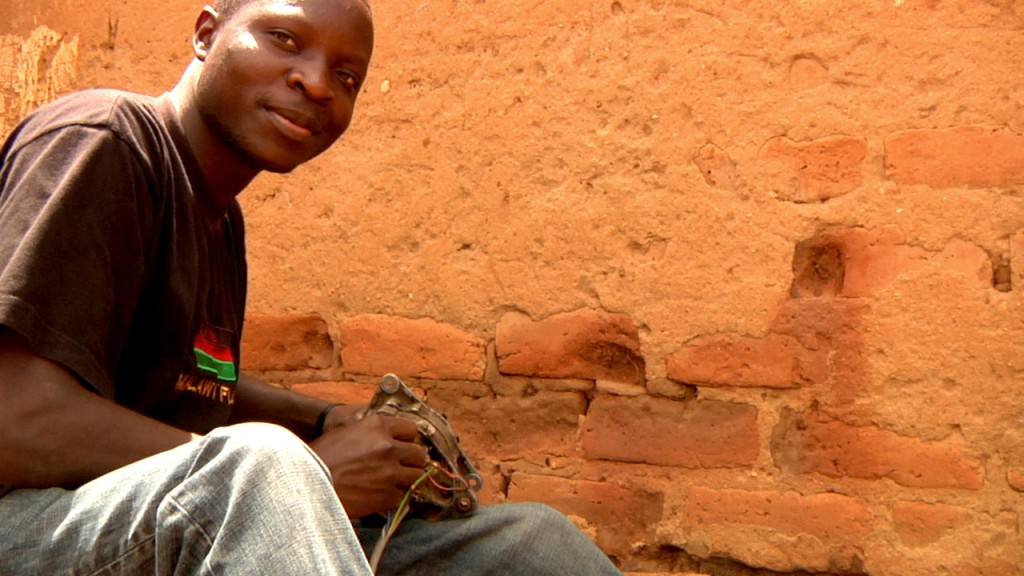
Now 29, this young Malawian innovator came to light at the age of 14 when he developed a windmill to produce electricity and water for his home. From then on, he has gone on to produce more windmills and a solar-powered water pump that supplied the first drinking water to his community.
The story of Kamkwamba is quite interesting. After he graduated from primary school, he proceeded for his secondary education. As a result of poverty, however, he was forced to drop out of school at 14.
At this point, he began borrowing books to read, and that was how he came into the generation of energy. He began with a prototype which he built using blade, old shock absorber, and blue gum trees. Following its success, he went on to generate electricity.
His next project was to use his invention to generate clean water, fight malaria, and provide solar power and lighting for the six homes in his family compound.
With the success of his inventions, people became interested in him and soon he was able to make it back to school. He graduated from Dartmouth College in 2014 and has published his autobiographical work; The Boy Who Harnessed the Wind.
Verone Mankou
(Watch his inspirational speech)
As regards the internet in Africa, Verone Mankou’s name has to come up. So also, in any serious list of young African inventors. He founded VMK and invented Way-C tablet, which serves to provide iPad to Africans.
He also developed Elikia (“Hope”) which became Africa’s first mobile phone. Apart from providing affordable smart devices to Africans, Mankou also provided increase internet access in his country, Republic of the Congo.
Through his company, VMK, Verone made Tablets in China and had them sold in Africa at very reasonable prices. That changed in 2016 when he decided to have the whole thing done on the African continent. This was thanks to a public financing by the Congolese government.
It was since 2009, that he began his company, and since then he has been setting new bars every year. In 2011, he began the first touchscreen in Africa, and in 2012 he started the Elikia Smartphone.
So many things come to play when you talk of Verone Mankou. Apart from the fact that he is an innovator, he is as well an entrepreneur, and he centers on providing affordable and quality devices to Africans.
Arthur Zang
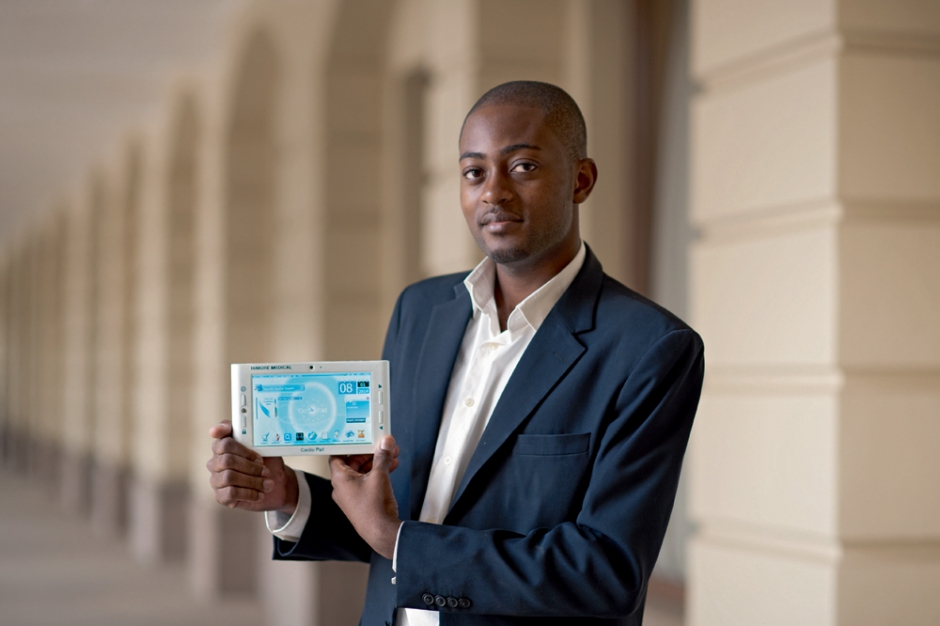
This Cameroonian engineer came up with the first handheld medical computer tablet for diagnosis of heart disease at the age of 24. The device which is used by health workers to perform cardiac tests.
In remote places, results from the test could be sent via the internet using the device to doctors for interpretation. This invention is very significant as a result of the promise it carries for Africans in Rural areas.
This is because once the doctor receives the results, he can give computer assisted diagnosis.
It is the first fully touch screen medical tablet made in Africa, and interestingly, its reliability rate is as high as 97.5%.
With less than 50 heart surgeons in the country of more than 20 million people, the innovation is very important as most of the doctors concentrate in Douala or Yaoundé.
Apart from the number of lives the pad is going to save, it will as well cut the cost of heart examination and allow the doctors examine more patients.
Because of the significance of the invention, Zang was awrded awarded the Africa Prize for Engineering Innovation by the UK’s Royal Academy of Engineering, among others. Asidu Abudu
Grants For Young African Inventors
Some problems faced by most of these young African inventors and innovators who are trying to impact science and technology in Africa include financial assistance, which is the main problem, conducive and supportive environment that would positively impact their works, and easy access to standard materials for their creations.
There are, however, some bodies and organizations in Africa and Some African countries that provide technology grants to African inventors and creators. Some of these bodies that provide funds, grants, and support for technology inventions in Africa include:
- The Fund for Internet Research and Development (FIRE Africa)
FIRE Africa gives over US$240,000 in grant funding to support ICT Projects.The organization which is one of the biggest in the continent;
provides funds in the form of Grants and Awards for projects, initiatives, tools and platforms that harness the power of the Internet to empower the local and regional community to solve the region’s unique online communications problems.








